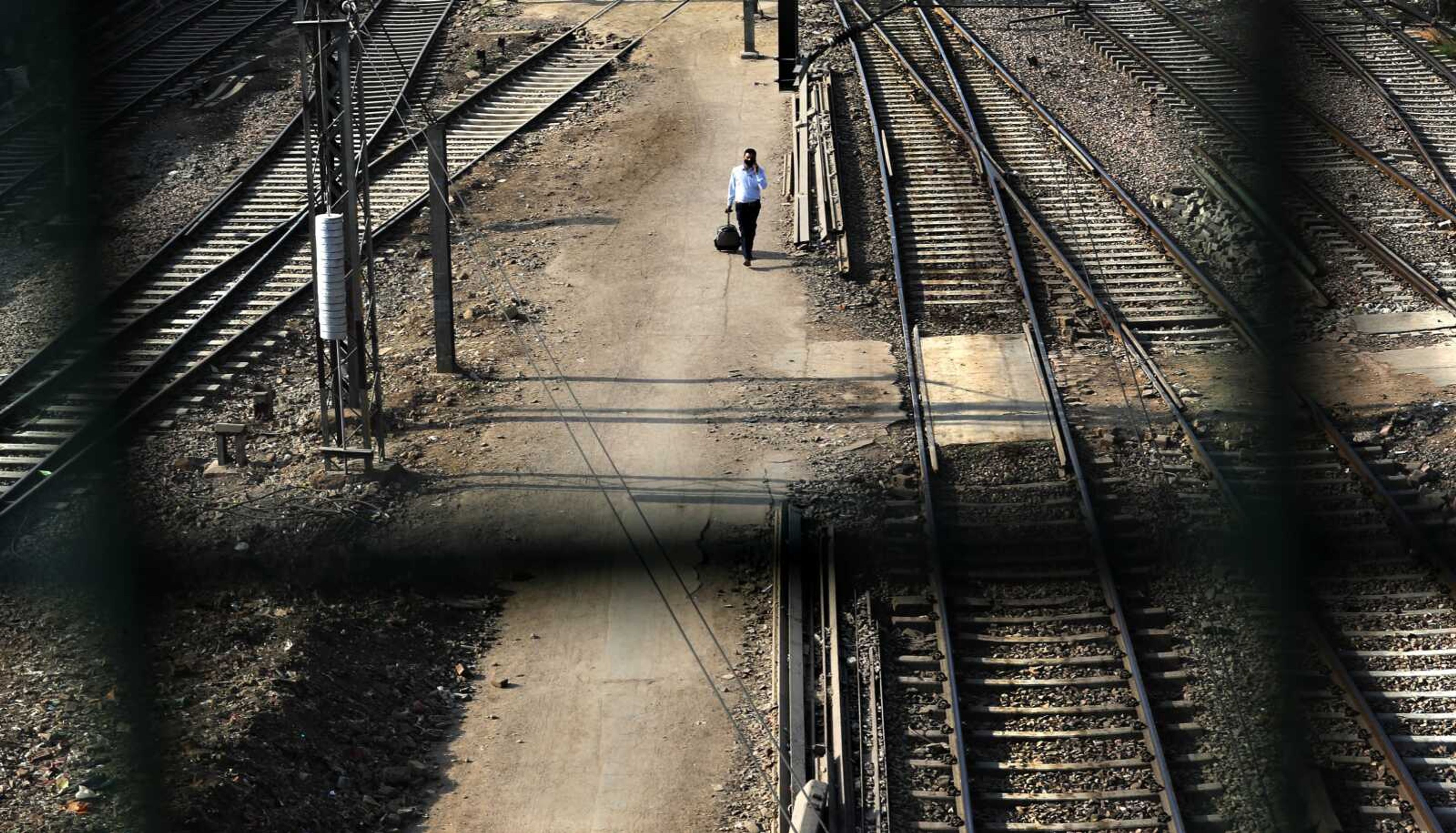PARIS -- The hunt for masks, ventilators and other medical supplies consumed the U.S. and Europe, as more than 1.5 billion people -- one-fifth of the world's population -- were urged or ordered to stay home Monday to try to blunt the spread of the coronavirus.
British health workers pleaded for more gear, saying they felt like "cannon fodder." In France, doctors scrounged masks from construction workers, factory floors, an architect.
"There's a wild race to get surgical masks," Francois Blanchecott, a biologist on the front lines of testing, told France Inter radio. "We're asking mayors' offices, industries, any enterprises that might have a store of masks."
Health care workers say they are being asked to reuse and ration disposable masks and gloves. A shortage of ventilators, crucial for treating serious COVID-19 cases, has also become critical, as has a lack of test kits to comply with the World Health Organization's exhortations to test as many people as possible.
With the crisis easing in China, where it began late last year, only the area around the city of Wuhan was still considered high-risk, with people asked to stay inside.
In the United States, a fierce political battle over ventilators has emerged, especially after President Donald Trump told governors that they should find their own medical equipment if they think they can get it faster than the U.S. government. Alaska is expected to run out of money imminently to pay doctors, hospitals and clinics who treat Medicaid patients.
China has been the one nation to counter this trend, sending planeloads of equipment such as masks, gloves and protective gear as well as doctors to countries across Europe, including hard-hit Italy, France and Spain as well as places with weaker medical systems like Bulgaria, Greece and Serbia.
"The U.S. is completely wasting the precious time that China has won for the world," said Geng Shuang, the Chinese Foreign Ministry spokesman.
Worldwide, more than 350,000 people have been infected and 15,000 have died from the virus. As cases in China ebbed, the dangers to Europe and the U.S. have grown exponentially, although Germany on Monday cautiously reported some flattening of its infection curve.
British Health Secretary Matt Hancock described those ignoring the government's social distancing recommendations as "very selfish" and warned that stricter rules might be coming soon.
"If people go within 2 meters of others who they don't live with, then they're helping to spread the virus," he said. "And the consequences of that costs lives."
Other countries, though, said the restrictions were working.
After 12 days of a national lockdown in Denmark, "we have together succeeded in changing our behavior very radically," Prime Minister Metter Fredericksen said, in extending closings until mid-April.
Italy's infections continued to spike, hitting 59,000 cases and 5,476 deaths, and India took the extraordinary step of shutting down the nation's rail system, which has long been the lifeblood of the country of 1.3 billion people. The arrival of the global pandemic in Syria as well as the Gaza Strip has raised concerns it could run rampant in some of the most vulnerable areas in the Mideast.
Two former passengers of the virus-infected Diamond Princess cruise ship died, bringing to 10 the number of deaths from a ship that had over 700 infections and stands as a prime example of how not to contain an outbreak.
Connect with the Southeast Missourian Newsroom:
For corrections to this story or other insights for the editor, click here. To submit a letter to the editor, click here. To learn about the Southeast Missourian’s AI Policy, click here.







